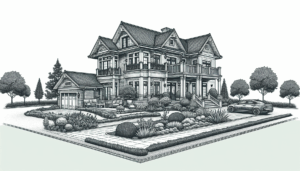buildingSMART representatives in 22 countries mobilize resources to expand the benefits of the Building Information Modeling methodology.
Europe is becoming increasingly BIM. The innovative technology that has changed the way construction professionals work is becoming a key tool and lever to drive sector digitalization. In order to continue this transformation, the European chapters of the buildingSMART association have joined forces and are mobilizing resources to expand the advantages of the Building Information Modeling methodology.
In particular, the European Chapters of buildingSMART have set out to support both the European Commission and national governments to accelerate the digitalization process and, in parallel, align existing initiatives to bridge the maturity gap of BIM in different countries. Digitizing construction permitting processes, promoting circular economy, and improving communication within the sector’s supply chain are some of the goals targeted by the European Chapters openBIM Forum (EOF).
The collaborative BIM working methodology, in which more and more professionals choose to specialize through adequate training, especially by opting for the best BIM master currently available in the market, guarantees efficiency, effectiveness, and optimal quality results in any construction project, centralizing all the information at play – geometric or 3D, time or 4D, costs or 5D, environmental or 6D, and maintenance or 7D – in a single digital model developed by all its agents. This avoids redundant work and streamlines processes throughout a project’s lifecycle.
The European Chapters openBIM Forum is comprised of 21 European chapters representing buildingSMART in 22 countries: Spain, Austria, Benelux (Belgium, Netherlands, and Luxembourg), Croatia, Czech Republic, Denmark, Finland, France, Germany, Iceland, Italy, Lithuania, Norway, Poland, Romania, Serbia, Slovenia, Sweden, Switzerland, United Kingdom, and Ireland.
As a first action, this organization has published a manifesto advocating the use of openBIM standards as a key measure to ensure a built environment that is digitized and sustainable. Because, as the manifesto reminds, even though the EU Public Procurement Directive requires BIM based on open standards, in the vast majority of EU countries openBIM is still not mandatory. The EOF aims to advance in that direction so that the AECO community (Architecture, Engineering, Communication, Operations sectors) benefits from a common language to export and import data throughout the project and asset lifecycle.
The mentioned manifesto highlights that “it will also increase the capacity to develop digital governance and strong data security.”
The EOF envisions upcoming actions, including meetings with the European Commission through various Directorates-General responsible for resource optimization policies in the collective interest of the construction sector.
Source: MiMub in Spanish












